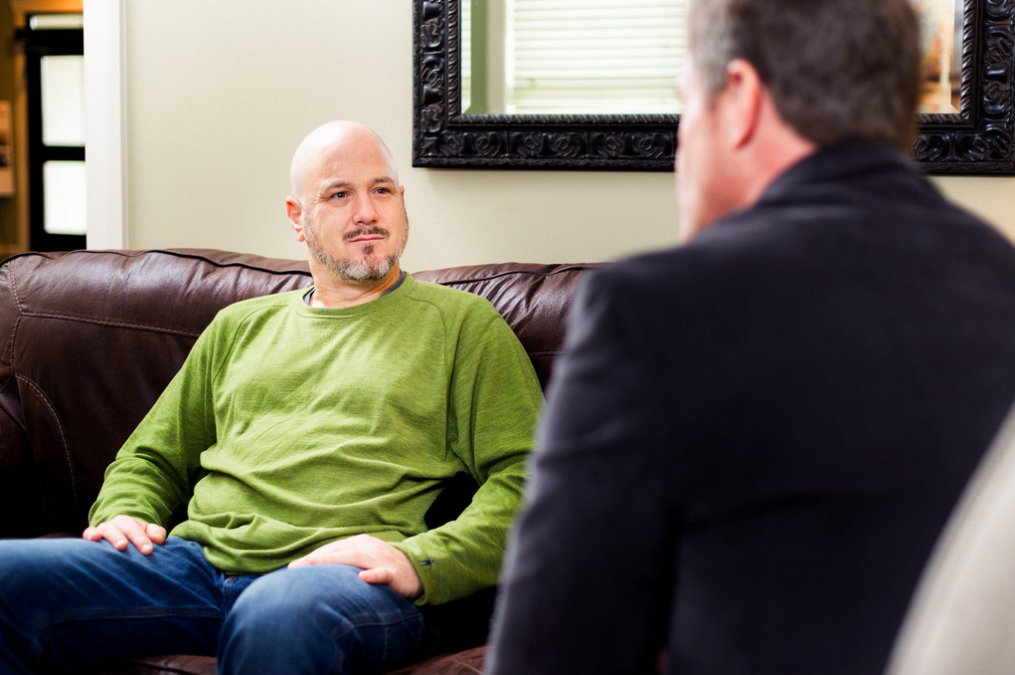I was extremely lucky. My first therapist was a recommendation from my meditation teacher. I could tell she was a great fit right from start. My body relaxed in her presence. In the first session, she helped me see how I inherited a tendency from my parents to stress about being productive enough. In that moment I started seeing the world—and myself—differently.
But after being a therapist for a few years I’ve learned it’s usually not that easy. Not only is the health care system hard to navigate because it’s privatized. But there aren’t enough therapists to meet the demand. It’s also hard to decipher the different types of therapy and acronyms (IFS, CBT, ACT, EMDR, LCPC, LCSW, etc.).
Then you find a therapist who actually has an opening, and something feels “off.” They aren’t quite getting what you’re saying. Or you feel like you’re talking a lot and not making any progress.
So, here’s my advice on finding a therapist who can actually help you. You, as in the person who is particularly you.
First, ask your friends for recommendations (or email me at jeremy@mohler.coach). My second (and overall most helpful) therapist was recommended by a close friend. Because that therapist worked well for her—someone I was very close with—the odds were higher that that therapist would be a fit for me. Asking friends will also help you practice being more vulnerable about what you’re struggling with.
If you want to find one yourself, use psychologytoday.com to search using your ZIP code. If you’re okay with therapy through video chat (“telehealth”), you can also search by state. Use the “Filters” to narrow based on “Specialties” (like anxiety, relationship issues, etc.) and the type of health insurance you have. This is important: Select “Available” under “How would you like to see your therapist?”
Click on a few therapists and read their profiles. Wait until you get the feeling that they will get you—like, really get you. Almost like they’d make a good friend. But a friend who’s a few years older and further along in life than you (not that they actually have to be older). Start with three therapists and send them each an email like this:
“Hi, I’m looking for a therapist and would like to set up an intro call to see if you’d be a good fit.”
Some therapists don’t do intro calls, but my advice is to only try therapy with someone who gives you the opportunity to feel them out through a no-cost call beforehand.
When you’re on the phone with each of them, let them drive the conversation. They will likely ask you what you need help with. Notice how they respond to what you share. See if you feel truly seen and heard. They will usually tell you how they work as a therapist (the types of therapy they use, etc.). If you’re not feeling good about them, you can end the call by saying something like, “I’m talking to a few therapists to see my options. I’ll follow up with an email to let you know.”
As you make your way through the search process, wait until something inside you says, “Yes,” before choosing who to go with.
Therapists don’t require you to make a commitment. Try therapy with as many as you need. I recommend trying at least three sessions. If it’s not feeling right, say something like this, “Hey, this isn’t working out for me, so I’m going to find another therapist. Do you have recommendations?” You can email them to end things, to make it less uncomfortable. Therapists understand that they won’t always be the best fit for every client.
If you can’t find a therapist who takes your insurance, make sure you can afford their “out-of-network” fee. Many health insurance plans cover a portion (sometimes more than half) of “out-of-network” fees. Check with your insurance company to see what percentage they cover.
If you don’t have insurance, your plan doesn’t cover therapy, or you can’t afford it, use Open Path Collective to find a therapist charging $40-$70 per session. You can also use Google or Psychology Today’s search function to find group therapy, which is usually more affordable (and often just as healing and transformative as individual therapy).
As always, don’t hesitate to email me if you need help navigating any of this: jeremy@jeremymohler.blog
